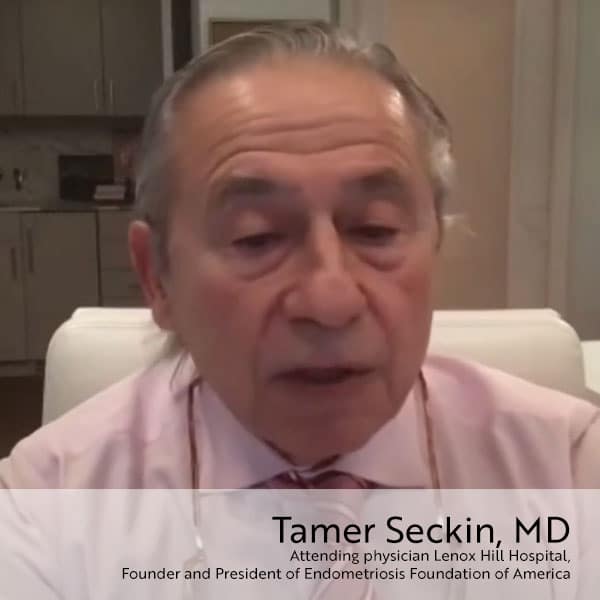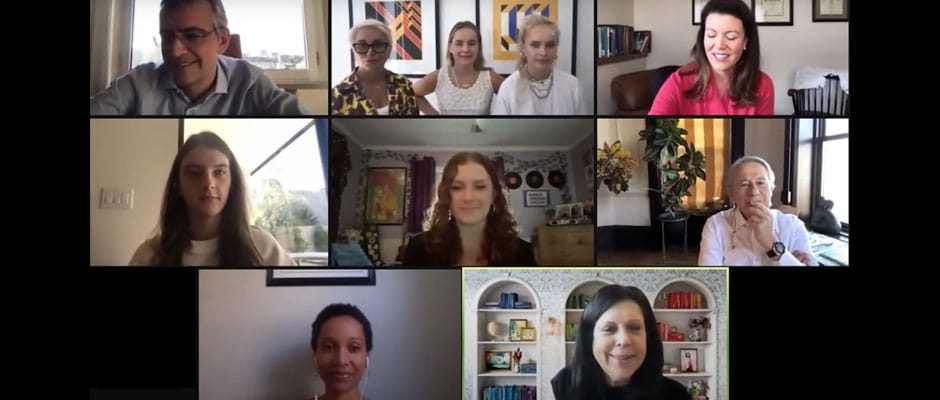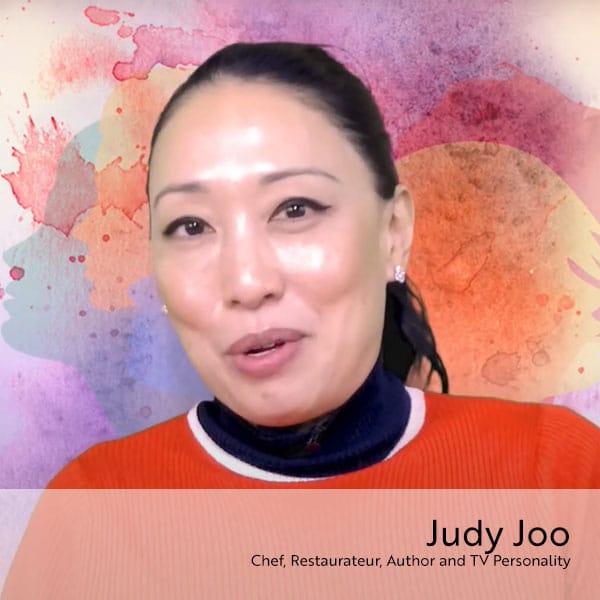International Endometriosis Patient Conference 2021 Coverage
The International Endometriosis Patient Conference 2021, The Path Towards A Cure:
Connecting Patients with Science took place virtually on March 19 and 21.

Bringing together endometriosis patients and experts in the fields of extrapelvic endometriosis, fertility, mental health, and nutrition, the conference was organized by The Endometriosis Foundation of America (EndoFound) in partnership with the International Society of Gynecologic Endoscopy.
Spanning over two days, the conference featured 46 speakers and 30 sessions. A total of 2000 people attended the conference.
The program of the endometriosis patient conference
The program included sessions on Adolescents and Familial Endometriosis, Patients for Advocacy and Policy Change, “Converting Pain to Power,” Complementary Management, Not So Rare: Endo of Remote Sites, and Fertility.
Dr. Tamer Seckin, the Attending Physician at Lenox Hill Hospital and the Founder and President of EndoFound, and Dr. Dan Martin, the Scientific and Medical Director of EndoFound moderated the sessions.
Introductions
The endometriosis patient conference kicked off with a live introduction by Margaret Caspler Cianci, the Executive Director of EndoFound. Then, Padma Lakshmi, the co-founder of EndoFound and an endometriosis patient welcomed the delegates.

Adolescent and familial endometriosis
The conference continued with a session on adolescent and familial endometriosis. Dr. Martin introduced the panel. This included Dr. Simone Ferrero, Associate Professor of Obstetrics and Gynecology at the University of Genova in Italy, Dr. Shan Biscette, Assistant Professor in the Department of OB-GYN at the University of Louisville School of Medicine. It also included five endometriosis patients. These were identical twin sisters Lane and Neve Rechan, their mother Meredithe Rechan, Anna Hagood, and Charlotte Woska.
After the patients powerfully shared their own stories, they agreed that killer cramps are not normal and pointed to the presence of an underlying problem. No management or treatment works for all patients, the panel concluded. They added that early surgery is important but may increase the need for repeat surgeries.
How to talk to your doctor about endometriosis
The day continued with a presentation by Dr. Tracey Haas, a clinical instructor at the University of Washington School of Medicine, on how to talk to your doctor about endometriosis. “Go to the doctor with someone who knows your life and symptoms,” Dr. Haas said. She also discussed the importance of being organized and gathering as much information as possible beforehand about symptoms and medications. She added that it is important to have a plan if the doctor does not listen and to have a second or third opinion if necessary.
Patients for Advocacy and Policy Change
The session on Patients for Advocacy and Policy Change continued with Doris Murimi’s presentation. Doris shared that she is an endo warrior who struggled with endometriosis for 30 years before finally obtaining a diagnosis. She is the CEO of Endo Sisters East Africa Foundation, the goal of which is to mainstream information dissemination on endometriosis as well as advance social justice for those living with endometriosis.
Sex and relationships
The conference continued with a session on sex and relationships moderated by Dr. Seckin. Panelists included Karen Robinovitz, Nikki Hartzoulakis, and Erik Rieloff.
Karen talked about how one day, out of the blue, she found it impossible to have sex because of the pain it was causing her and how this affected her relationship with her partner. “Be open about it,” Karen said referring to her pain and to the impact the disease has on her partner.
Erik, the 20-year husband of another endo patient, Nikki Hartzoulakis, said: “Thank you for validating what we go through,” and added that endometriosis takes many different forms.
The psychological effects that pelvic pain
The next session in the conference concerned the psychological effects that pelvic pain has on quality of life. Dr. Arnold Wilson, Lecturer of Psychiatry at Columbia University School of Medicine, touched on six essential points for people with endometriosis.
The first was that depression is an inadequate explanation for what people with endometriosis go through and that they usually suffer from different forms of depression; from hormonal depression to situational depression and dependency depression. “Not to be reductive is important,” Dr. Wilson said.
His second point was to go easy on psychotropic medications, which are usually for people with general depression—not for people with endometriosis with depression.
Dr. Wilson’s third point was about the importance of letting people know about brain fog. This is a state where the mind freezes when the pain becomes too much. In his fourth and fifth points, Dr. Wilson said that it was normal to experience panic attacks from time to time and that this needs treatment.
Finally, as his final point, Dr. Wilson said that patients should keep in mind that it is not very easy to get better with endometriosis and that pain may persist even after surgery.
After Dr. Wilson’s presentation, there was a presentation with the title “Self-Compassion: Essential When Quality of Life is Affected By Endometriosis” by Hanne Vedsted-Hansen, a mindful self-compassion teacher. Hanne guided participants through an exercise about how to treat a friend with endo. She then touched on some misconceptions about self-compassion and explained that it is neither self-pity nor self-indulgence. “Mediate a little every day,” Hanne said, adding that it requires persistence and perseverance.
Complementary management of endometriosis
The next session in the conference was on the complementary management of endometriosis such as cannabinoids, acupuncture, and diet. The session started with a presentation by Dr. Mike Armour, a Senior Research Fellow in Women’s Health at NICM Health Research Institute at Western Sydney University. Dr. Armour discussed the endocannabinoid system and summarized their research study on 484 women with endometriosis in Australia. Of these, 10% use cannabis to manage the symptoms of endometriosis.

This was followed by a live panel on endo-friendly foods moderated by Judy Joo that included two endo patients. They were Winnie Chan and Jessica Murnane, and acupuncturist Lida Ahmady. The panelists talked about diet and gut health and an anti-inflammatory diet.
Endometriosis of remote sites
The penultimate session of the conference was on endometriosis of remote sites such as the bowel, bladder, kidneys, and chest. The session kicked off with a presentation by Dr. Shaheen Khazali, an endometriosis surgeon based in London and Surrey. Dr. Khazali talked about the nervous involvement of endometriosis. He also touched on some of the common nervous symptoms of the disease. These may include fatigue, sweaty hands, foot drop, and back pain.
One of the panelists in this session, Dr. Smitha Vilasagar, a minimally invasive gynecologic surgeon at Carolinas Healthcare System Mercy Women’s Center for Pelvic Health said that 12% of women with endometriosis have lesions elsewhere in their body. This may include the liver, appendices, belly button, and even lungs.
Tanya Raymond and Lori Konecni then shared their stories of how they experienced lung collapses due to endometriosis and their treatment journey.
Fertility and endometriosis
Panelists in this session included Dr. Tomer Singer of Shady Grove Fertility New York, board-certified reproductive endocrinologist Dr. Michael Dahan of the Department of Obstetrics and Gynecology at McGill University in Canada, and Dr. Victor Gomel, Professor Emeritus in the Department of Obstetrics and Gynecology at the University of British Columbia.
The conference concluded with a live wrap-up by Dr. Tamer Seckin and Margaret Caspler Cianci and two moving patient stories.
All the sessions are available to watch on EndoFound’s website.
Get a Second Opinion
Our endometriosis specialists are dedicated to providing patients with expert care. Whether you have been diagnosed or are looking to find a doctor, they are ready to help.Our office is located on 872 Fifth Avenue New York, NY 10065.
You may call us at (646) 960-3080 or have your case reviewed by clicking here.